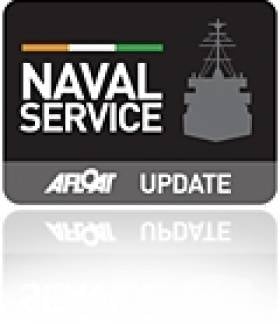Displaying items by tag: Irish trade delegation to Russia
Naval Service OPV On Visit to Russia and Baltic States
Since Tuesday the offshore patrol vessel (OPV) has been berthed in the Baltic city of St. Petersburg. Her naval officers laid a wreath at the Piskarevskoye Memorial Cemetery. Also visited was the Central Naval Museum and the naval cruiser Aurora, where one of the first incidents of the 'October' Russian revolution took place in 1917.
Irish Ambassador to Russia Philip McDonagh boarded the L.E. Roisin yesterday to highlight Irish-Russian bi-lateral relationships and co-operation between the two countries in areas of economic, culture, education and tourism. In the first-half of 2010 bi-lateral trade with Russia was up 66% and St. Petersburg is the most important economic centre after Moscow.
The trade mission follows last year's visit of president Mary McAleese who became the first Irish head of state to visit Russia. On her visit which included St. Petersburg, she signed a protocol on partnership and co-operation between the Russian city and Dublin during the third St. Petersburg International Innovation Forum.
In March of this year representatives from St. Petersburg took part in the Russian Culture Festival in Dublin. Three months later in July, the Irish capital was visited by the Russian Naval destroyer Admiral Chabanenko (650), the flagship of the countries Northern Fleet. For more on that visit of the Udaloy –II class destroyer click HERE.
L.E. Roisin is not the first Irish Naval Service vessel to visit the Russian Federation as this accolade goes to the flagship L.E. Eithne (P31) which called to St. Petersburg in 2003.
- Irish Naval Service
- Dublin Port
- naval service
- Ports and Shipping News
- LE Eithne
- Naval Visits
- Navy News
- Irish navy news
- L.E. Roisin
- LE Roisin
- Irish OPV vessels
- St. Petersburg trade mission
- IrishRussian trade
- Irish Ambassador to Russia
- President Maru McAleese
- Irish trade delegation to Russia
- Lt Cdr Peter Twomey
- Philip McDonagh
- Adi Roche
- Chernobyl Children's Project





























































